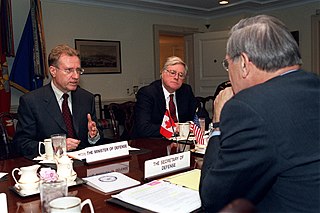A Quote by Edward Snowden
In the United States and some of the other countries involved it's sort of a "five eyes" global spying alliance. That's the US, UK, Canada, New Zealand, and Australia. They've had a little bit of a more muscular public response. Now, they haven't been satisfying or really meaningful in any country yet. But they have been engaging.
Quote Topics
Alliance
Any
Australia
Been
Bit
Canada
Countries
Country
Engaging
Eyes
Five
Global
Had
Involved
Little
Little Bit
Meaningful
More
Muscular
New
New Zealand
Now
Other
Other Countries
Public
Really
Really Mean
Really Meaningful
Response
Satisfying
Some
Sort
Spying
States
UK
United
United States
Us
Zealand
Related Quotes
The most striking thing Snowden has revealed is the depth of what the NSA and the Five Eyes countries [Australia, Canada, New Zealand, Great Britain, and the US] are doing, their hunger for all data, for total bulk dragnet surveillance where they try to collect all communications and do it all sorts of different ways. Their ethos is "collect it all."
Membership in the European Community, now the European Union, has enabled Ireland to re-find its sense of participation - cultural, political, social - at the European level. I think that also opens up possibilities for Ireland as a European country to look outward - to look particularly, for example, at countries to which a lot of Irish people emigrated, to our links - our human links - with the United States, with Canada, with Australia, with New Zealand. And to look also, because of our history, at our links to the developing countries.
By the end of the 1960s, the United States owned more than half of the Indian rupee money supply, and that had been acquired through food aid. So I think it's very interesting to see the very long history of how sovereignty and food go together. When some countries remove another country's ability to feed itself, it is a very powerful tool. Imperialist countries, like the United Kingdom, like the United States, have used it for centuries.
Many European countries, as well as Australia, Canada, Israel, and New Zealand, have adopted legislation that creates a 'public lending right', where the government recognises that enabling hundreds of people to read a single copy of a book provides a public good, but that doing so is likely to reduce sales of the book.
Continuous wars - which we have now had since 2001 - starting with Afghanistan, continuing on to Iraq. And even since Iraq, it's been more or less continuous. The appalling war in Libya, which has wrecked that country and wrecked that part of the world, and which isn't over by any means. The indirect Western intervention in Syria, which has created new monsters. These are policies, which if carried out by any individual government, would be considered extremist. Now, they're being carried out collectively by the United States, backed by some of the countries of the European Union.
The potential of Mexico, Canada and the United States is enormous. We have a combined population of half a billion people; peaceful trade-friendly borders that are the envy of the world; the prospect of energy independence is within reach and will change the geopolitical situation of United States; we do a trillion dollars in trade among the three countries; more than 18,000 American companies are involved in foreign direct investment in Mexico and Canada; an increasing number of Mexican companies are creating jobs in the United States.
In the Islamic world, the U.S. is seen in two quite different ways. One view recognizes what an extraordinary country the U.S. is.The other view is of the official United States, the United States of armies and interventions. The United States that in 1953 overthrew the nationalist government of Mossadegh in Iran and brought back the shah. The United States that has been involved first in the Gulf War and then in the tremendously damaging sanctions against Iraqi civilians. The United States that is the supporter of Israel against the Palestinians.
What kind of person would run for president of the United States in today's political climate? It would have to be somebody who's never really been drunk in public, who's never had an affair, who never shoplifted when they were a little boy, who never had any sort of counseling at all. I just don't know how you go through your life meeting people, experiencing everything you can, trying to absorb, and not make some of those mistakes. It's impossible.
Thirty-five states have Canada as their largest export market. Let's say we get into a trade war with the United States - hopefully not, but let's say. Many states in the union are going to have trouble and more costs getting their stuff up to Canada. If we make the border a little thicker in terms of tariffs, and hit back, that will start to impact the states, in particular large business interests that are in Canada. And that starts to put indirect pressure on the White House.






































